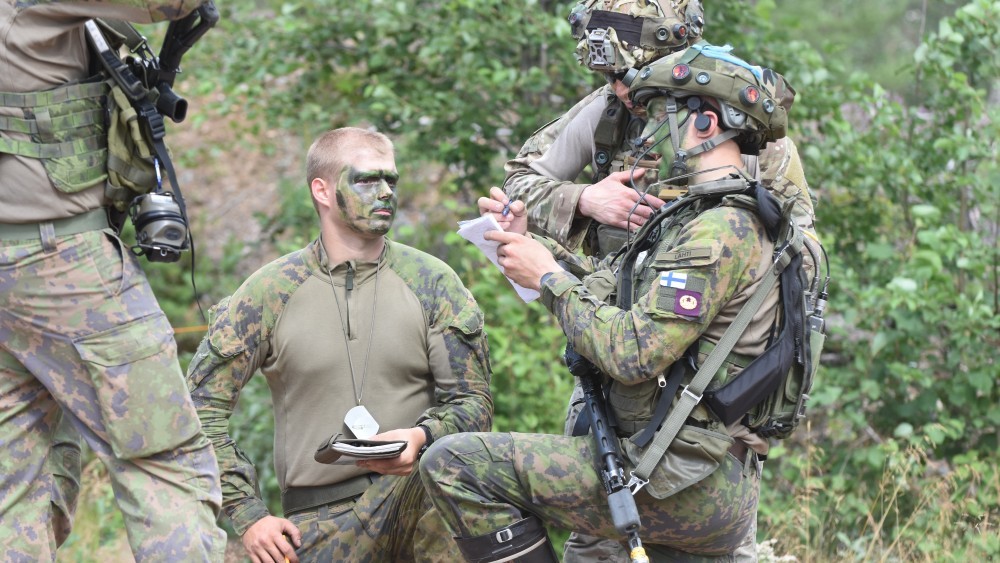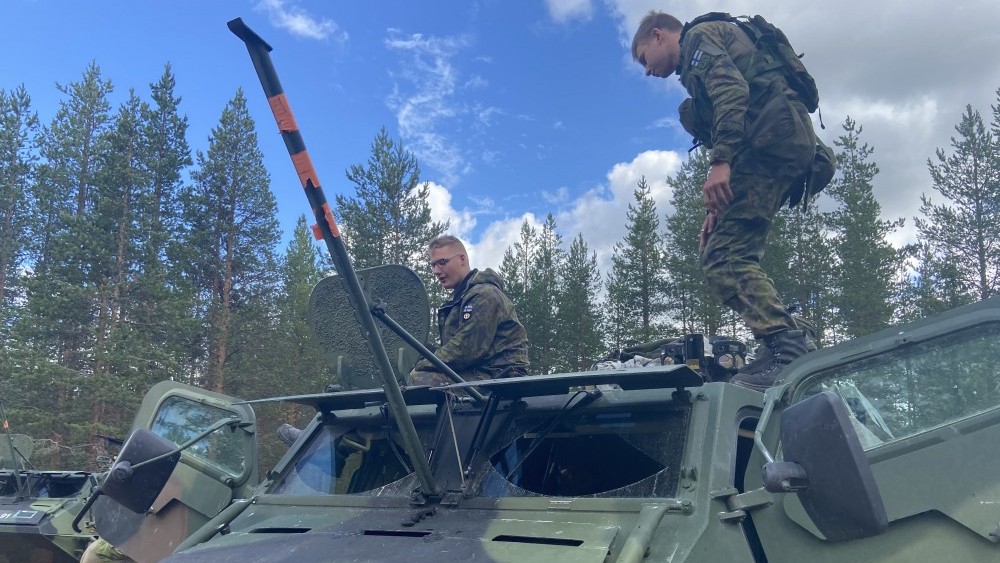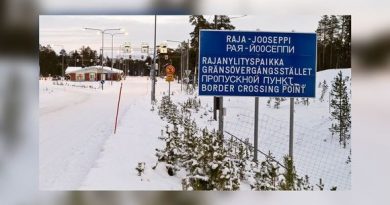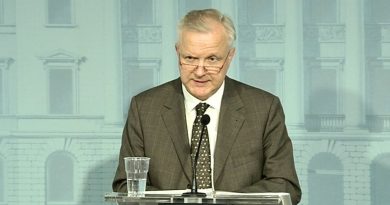Hundreds of foreign soldiers join military exercise in Arctic Finland

A record high 880 Swedish soldiers have crossed the northern border to Finland for a week-long exercise kicking off on Monday. British troopers are also participating.
Finland has invited foreign military forces for a series of military drills in the transition period to NATO membership. In July, hundreds of Norwegian and U.S. army soldiers conducted combat training in the boreal forest at Rovajärvi shooting range. Now, the same area will host an even larger exercise.
Entitled Vigilant Knife, the drill is aimed at improving Finland’s ability to receive Swedish Army forces in the north and to organize the host nation’s support necessary for the arriving units.
Technical and tactical interoperability between the two coming NATO members will be trained, Finland’s Armed Forces informs.
The first Swedish troopers and armored vehicles crossed the border from Haparanda to Tornio on Friday and Saturday. From the border, the troops moved north some 150 km to the exercise area between Rovaniemi and Kemijärvi, some 90 km from Finland’s border with Russia.
Rovajärvi artillery range is the largest in Western Europe.
880 Swedish soldiers, 80 British personnel on site
The exercise from August 29 to September 2 includes 200 service personnel and about 1,300 conscripts and reservists from the Finnish Defense Forces. Lapland Border Guard District is participating, although the Finnish Border Guards are not an integrated part of the country’s military structure.
880 Swedish soldiers and 80 British personnel are now on site, ready for what will be one of the largest army exercises in Finland this year.
Finland, like all other European countries bordering Russia, has since Moscow’s brutal attack on Ukraine six months ago arranged numerous military exercises as part of enhanced cooperation.

The changing security architecture in Europe is strongly affecting the north. NATO Secretary General Jens Stoltenberg recently warned about Moscow’s militarization of the Arctic:
“Russia has significantly increased its military activity in recent years, setting up a new Arctic Command, opening hundreds of new and former Soviet-era Arctic military sites, including airfields and deep-water ports, and using the region as test-bed for novel weapon systems,” Stoltenberg wrote in an OpEd.
Last week, some 700 Swedish soldiers were alarmed in a snap drill taking place near Kalix in northern Sweden.
Sweden and Finland’s security cooperation with NATO have been going on for decades already. The Nordic countries joined the Partnership for Peace program in 1994, a short three years after the breakup of the Soviet Union.
Finland has also participated in NATO-led missions in the Balkans, Afghanistan and Iraq.
Related stories from around the North:
Canada: Prime Minister, NATO secretary general to spotlight Arctic defence on Nunavut visit, CBC News
Finland: Norwegian military vehicles take new transit corridor via Finnish Lapland, The Independent Barents Observer
Norway: Defence minister says Norway must get stronger in the North, The Independent Barents Observer
Finland: Defence ministers of Norway, Finland, Sweden to talk security at Thursday meeting, Eye on the Arctic
Russia: Assertive Moscow outlines push into central Arctic Ocean, The Independent Barents Observer
United States: U.S. Army poised to revamp Alaska forces to prep for Arctic fight, The Associated Press



